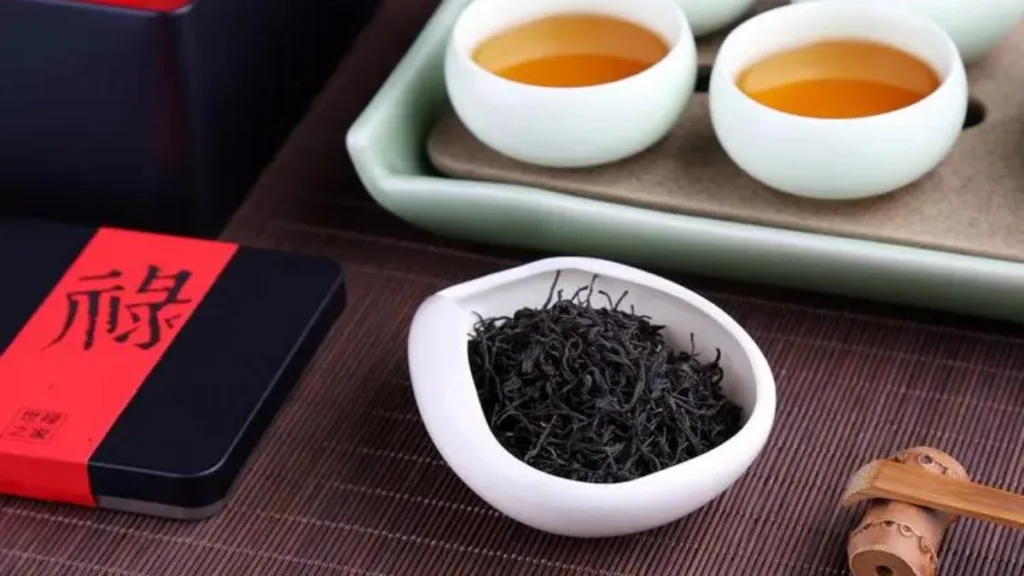Black tea, cherished worldwide, stands as a beloved beverage known for its simplicity in preparation, mild flavor, and widespread popularity. An integral part of Chinese tradition, it has gained global recognition for its vibrant red hue and aromatic fragrance. Exploring the chemical composition of black tea reveals a rich tapestry of over six hundred compounds, each contributing to its flavor, color, aroma, and various health benefits. This article delves into the key chemical constituents that make black tea not only a delightful indulgence but also a beverage with potential health-promoting properties.
Key Chemical Components:
- Caffeine:
- Black tea contains a significant amount of caffeine, a natural stimulant constituting 2-5% of the dry weight of tea leaves. Caffeine acts as a central nervous system stimulant, offering invigorating effects and heightened alertness.
- Polyphenolic Compounds:
- Soluble polyphenolic compounds, constituting 10-20% of the dry weight, play a crucial role in black tea. Notably, catechins, accounting for 70% of total polyphenols in small-leaf black tea, offer various health benefits.
- These compounds exhibit anti-atherosclerotic, anti-atherogenic, lipid-lowering, anti-inflammatory, antimicrobial, anti-radiation, anti-cancer, and anti-mutagenic effects. The oxidation and polymerization of tea polyphenols contribute to the red color, unique aroma, and flavor of black tea.
- Vitamins:
- Black tea is a rich source of various vitamins, including B5, B1, B2, B11, C, E, and K. Vitamin B5, in particular, aids in preventing skin conditions, while B1, B2, and B11 support nervous system functions, skin elasticity, and fat metabolism, respectively. Vitamins C and E contribute to immune health and possess antioxidant properties, delaying aging. Vitamin K promotes blood clotting, benefiting overall health.
- Mineral Elements:
- Essential minerals such as phosphorus, potassium, calcium, magnesium, iron, manganese, fluorine, and selenium are found in black tea. Fluorine aids in preventing dental issues, while selenium exhibits anti-radiation and anti-cancer effects.
- Amino Acids:
- Black tea contains 25 known amino acids, with theanine being the most abundant, constituting over 50% of total amino acids. Theanine contributes to healthy development and regulates fat metabolism.
- Other Components:
- Polysaccharides present in black tea offer radiation protection and enhance white blood cell count. Additionally, black tea contains theophylline, known for its blood glucose-lowering effects, and amino butyric acid, contributing to blood pressure regulation.
Processing and Chemistry:
Black tea, one of the primary tea categories, undergoes meticulous processing from freshly harvested leaves. The chemical composition undergoes significant changes during this process. The oxidation of tea polyphenols yields new compounds such as theaflavins and thearubigins. The aromatic profile expands from over 50 compounds in fresh leaves to 300 in processed black tea, creating a complex and flavorful brew. Notable black tea varieties include Qi Men Hong Cha from Anhui, Dian Hong from Yunnan, and Zheng Shan Xiao Zhong from Fujian.
Global Prominence and Health Benefits:
With over 80% dominance in global tea trade, black tea’s widespread popularity is attributed to its appealing characteristics. Being a neutral tea, it suits diverse age groups, making it particularly suitable for women and children. Beyond its delightful taste, black tea is revered for its unique health-promoting properties, making it a staple in households around the world.
Conclusion:
In essence, black tea is not merely a beverage; it is a symphony of chemical compounds working harmoniously to deliver a flavorful and healthful experience. From the invigorating effects of caffeine to the potent antioxidants found in polyphenolic compounds, each component contributes to the allure and potential benefits of black tea. As it continues to captivate tea enthusiasts globally, black tea stands as a testament to the intersection of tradition, chemistry, and well-being in every steeped cup.



